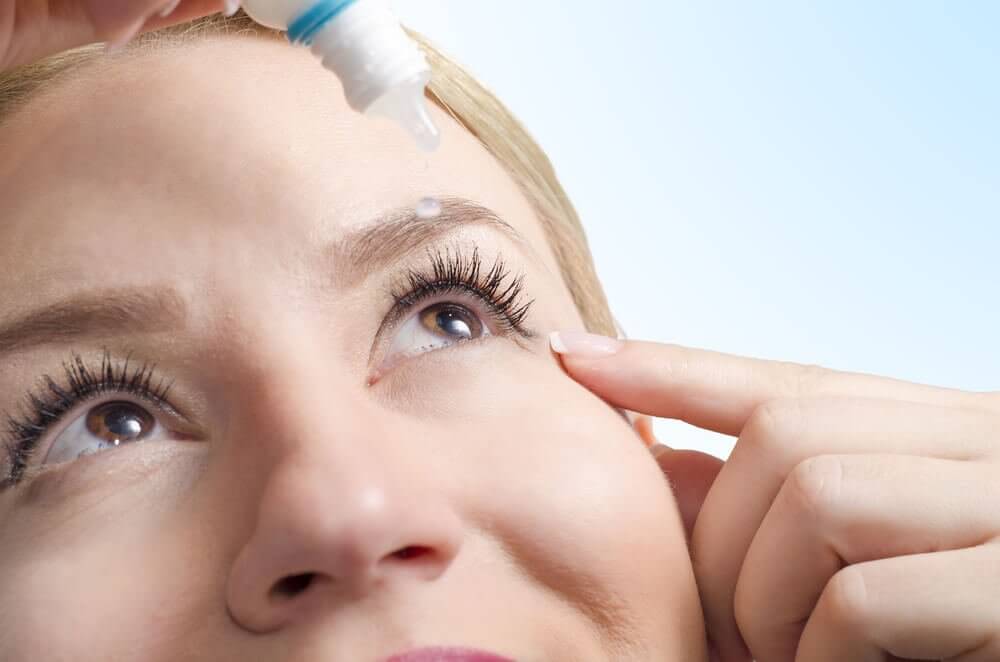6 Effects of Air Conditioning On Your Health

These days, air conditioning can be found in offices, cars, and even people’s homes in warm countries. However, there are negative consequences to this. In this article, we’ll take a look at the negative effects of air conditioning on your health.
As well as the normal sore throats and colds, using the air conditioning excessively can affect your well-being. It’s mainly because it’s not good for your health to be in an over dry environment. Therefore, you need to use it responsibly so that it can still be your best friend in the summer.
6 Effects of Air Conditioning On Your Health
Next, we’ll take a look at the main negative effects of air conditioning on your health.
1. Respiratory Problems
It’s important to realize that any drastic change in temperature does damage to your respiratory system. Therefore, moving from a warm temperature to the cold temperature of the office or the supermarket can cause some real problems.
Because of the circulation of the air, it also makes you more vulnerable to respiratory infections. It can cause problems such as pharyngitis or throat infections.
In fact, there is evidence to suggest that people who spend more time in air-conditioned environments have a greater risk of developing throat and nasal symptoms. Therefore, they have a greater chance of developing nasal instructions like rhinitis.
2. Viral Infections

One very common effect of air conditioning is the spread of viral infections owing to a weakened immune system.
In an air-conditioned environment, the old air is constantly recirculated, stopping fresh air from getting in. As a result, the old air flows and transmits cold and flu germs, as well as other bacteria, from person to person.
Therefore, there is a greater risk of contracting a viral infection in an air-conditioned environment than in a room without air conditioning.
3. Dehydration
People who spend long hours in air-conditioned rooms are obviously more prone to dehydration. Since the air conditioning absorbs too much moisture, and people often don’t drink enough water, they become dehydrated.
This is possible even though the temperature is cooler because the body doesn’t feel hot and therefore is not as thirsty. Furthermore, being in a cooler environment means the body feels the need to move less.
4. Headaches
Without a doubt, headaches are one of the most common side effects of air conditioning. Certainly, if you abuse the air conditioning you can easily trigger a headache or even migraine when the air quality inside improves.
Obviously, the risk of being dehydrated also increases the chance of a headache. Dehydration is often ignored despite being a trigger for other health problems.
You might like:
5. Dry Eyes

Air conditioning can cause dry eyes which in turn leads to soreness and itching. Of course, air conditioning doesn’t directly cause your eyes to dry out, but it certainly doesn’t help people who already have this problem.
It just makes things even worse. So if you suffer from dry eyes, it’s best you stay out of air-conditioned environments.
6. Reduces Your Ability to Tolerate Heat
If you spend a lot of time in an air-conditioned room, you could develop an intolerance to heat. This is especially common during the summer.
Remember that your body can be stressed when you move from the cold office into the warm summer are. This sudden change of temperature can have a negative impact on your health.
Read:
In summary, air conditioning can have some seriously negative effects on your health. Therefore, it’s important to use it responsibly and not excessively.
All cited sources were thoroughly reviewed by our team to ensure their quality, reliability, currency, and validity. The bibliography of this article was considered reliable and of academic or scientific accuracy.
- American Society of Heating Refrigerating and Air Conditioning Engineers. (2009). Indoor environmental health. In ASHRAE Applications Handbook.
- Garcia, G. J. M., Bailie, N., Martins, D. A., & Kimbell, J. S. (2007). Atrophic rhinitis: A CFD study of air conditioning in the nasal cavity. Journal of Applied Physiology, 103(3), 1082–1092.
- Jones, A. P. (1999). Indoor air quality and health. Atmospheric Environment.
- Yu, B. F., Hu, Z. B., Liu, M., Yang, H. L., Kong, Q. X., & Liu, Y. H. (2009). Review of research on air-conditioning systems and indoor air quality control for human health. International Journal of Refrigeration.
This text is provided for informational purposes only and does not replace consultation with a professional. If in doubt, consult your specialist.








